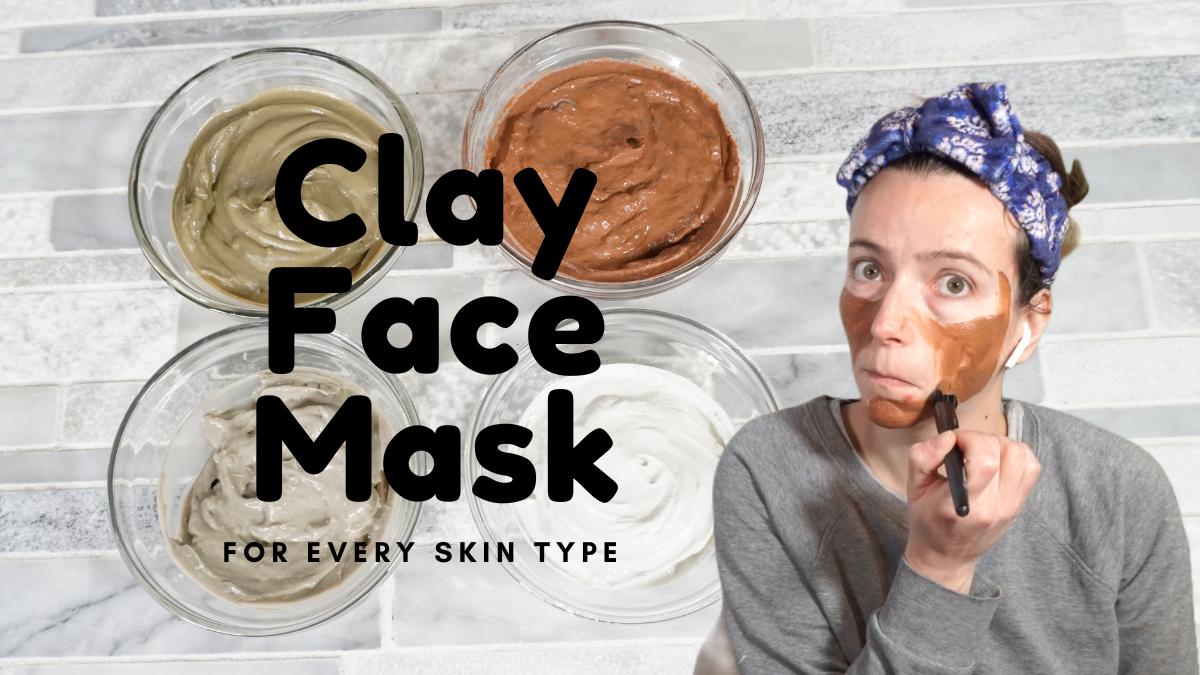Enjoy this collection of Clay Face Mask recipes for every skin type. I will show you how to make four different clay masks, each based on a specific skin type. I love powder face masks because they are easy to customize based on your skin’s needs, and they have a long shelf life before going bad. Clay face masks are a great addition to any skincare regimen.
Table of Contents
Prefer to watch this project instead of reading it?
Some of the links are affiliate links because I am an associate, and I earn a small commission on them. There is no additional cost to you; I earn a commission if you click through and make a purchase.
The science behind clay is that it helps to clean your pores by removing impurities such as oil, dirt, and germs from them. Each type of clay has its own unique benefit. Let’s go over them now.
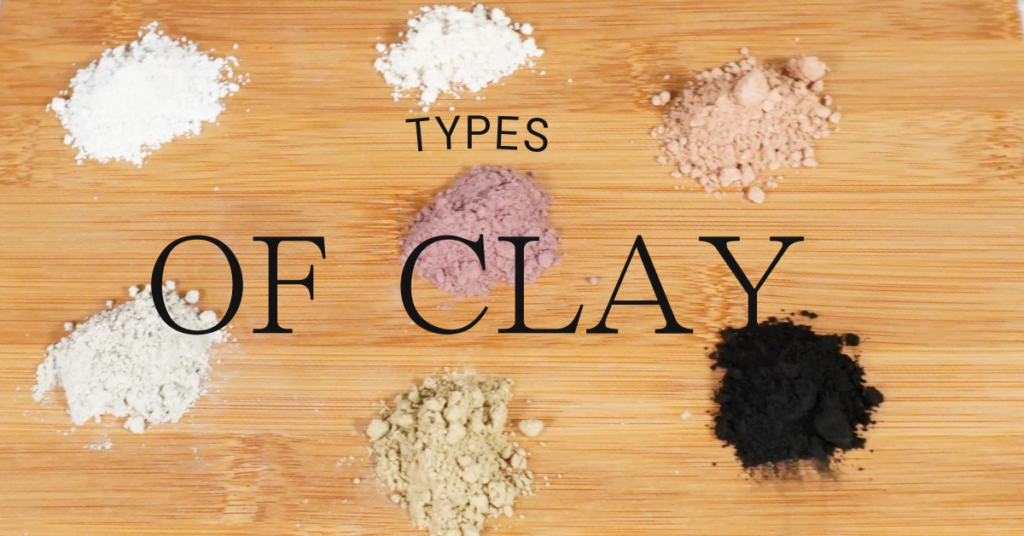
Which Clay Is Right for Your Skin?
Bentonite clay
- Bentonite clay is suitable for normal, oily, or combination skin.
- It is absorbent, effectively removing dirt and oil.
- Derived from weathered and aged volcanic ash, it contains calcium, magnesium, silica, sodium, copper, iron, and potassium.
- May help balance oil production.
- Reduces redness caused by inflammation and irritation, promoting an even skin tone.
- Astringent properties that can help shrink enlarged pores.
French Green Clay
- French green clay is suitable for oily and sensitive skin.
- Ideal for treating acne, as it is highly absorbent and removes impurities from the skin.
- Removes excess sebum, oils, dirt, germs, and other impurities from pores.
- It has a light green color derived from plant matter and iron oxides.
- Exhibits toning properties that stimulate the skin and promote increased blood flow to the surface.
- Due to its absorbent nature, even individuals with oily skin should use it only once a week.
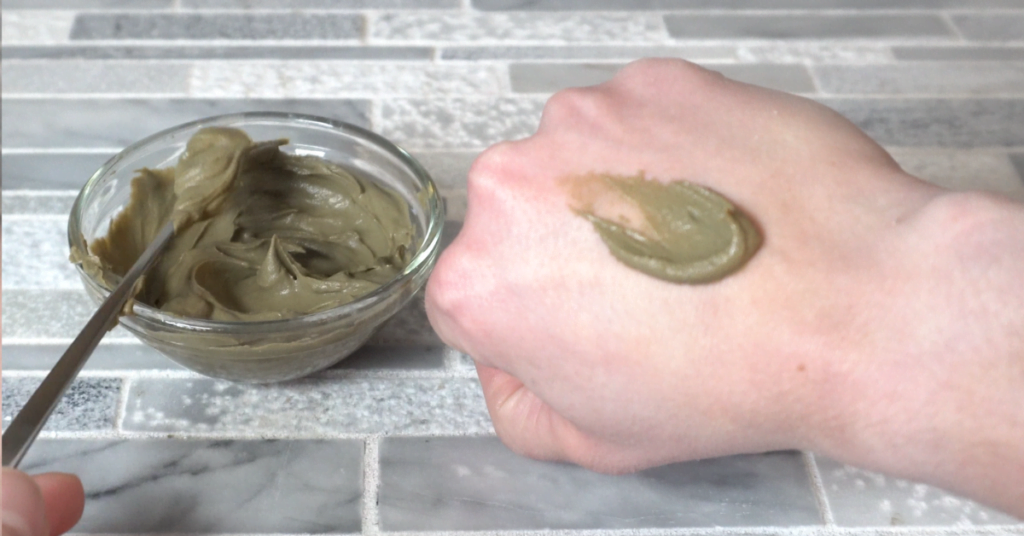
Kaolin Clay
- Kaolin clay is suitable for dry to sensitive skin.
- Kaolin clay does not absorb as much oil, making it suitable for dry skin.
- Instead of absorbing impurities, kaolin clay adsorbs, drawing impurities to the surface and holding them like a magnet.
- It has larger particles that can exfoliate and cleanse.
Moroccan Red Clay
- Moroccan red clay is suitable for dry, oily, and combination skin.
- Contains potassium, silica, iron, magnesium, and sodium.
- It is absorbent, effectively removing blackheads by drying them out and gently pulling them to the surface.
Additives
Before you choose what additives you want to add to your mask, ask yourself why you are using one.
Doing this is going to help you choose what additive to use; otherwise, it can be a bit overwhelming
Aloe
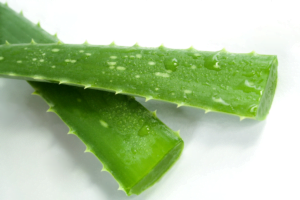
- Aloe is said to be soothing and cooling on our skin.
- It has antioxidants, vitamin A, and vitamin C, making it moisturizing.
- Aloe is available in powder, gel, or liquid form.
Activated Charcoal
- Activated charcoal is highly porous and great at absorbing oils and dirt.
- It can absorb thousands of times its own weight, making it suitable for oily and acne-prone skin due to its high absorbent nature.
Chamomile Powder
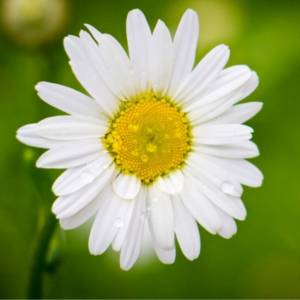
- Chamomile powder is soothing to our skin.
- It is commonly used to soothe inflammation and irritation.
- It is said that it can help with oily skin, reducing the appearance of blemishes, acne, fine lines, and scars.
Colloidal Oatmeal
- Colloidal oatmeal is made from grinding whole oat grains into a fine powder.
- It is suitable for sensitive and irritated skin.
- It is said to help reduce redness on the face and the visibility of fine lines.
Sea Kelp Powder
- Sea kelp powder is ideal for oily and acne-prone skin.
- It draws out impurities from our skin.
- Contains Vitamins B12 and E, providing moisturizing benefits to our skin.
Oils
- Oils help to moisturize and soften our skin. They can be added to any clay mask, but using a small amount is crucial to prevent the mask from being unable to stick to your face.
- Jojoba oil closely resembles the sebum that our skin produces.
- Sweet almond oil is rich in fatty acids and is suitable for all skin types.
Honey
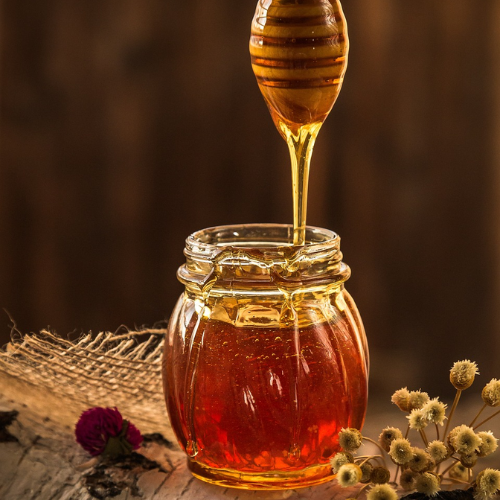
- Honey is moisturizing and soothing.
- It is good for all skin types.
- Honey is packed with antioxidants and has antibacterial properties.
Face Mask recipes for every type of skin
You can adjust these recipes as much or as little as you would like based on the ingredients that you have and your desired result.
Oily / Acne Prone Skin
French green clay
Sea Kelp powder
Dry Skin
Honey
Bentonite clay
Mature Skin
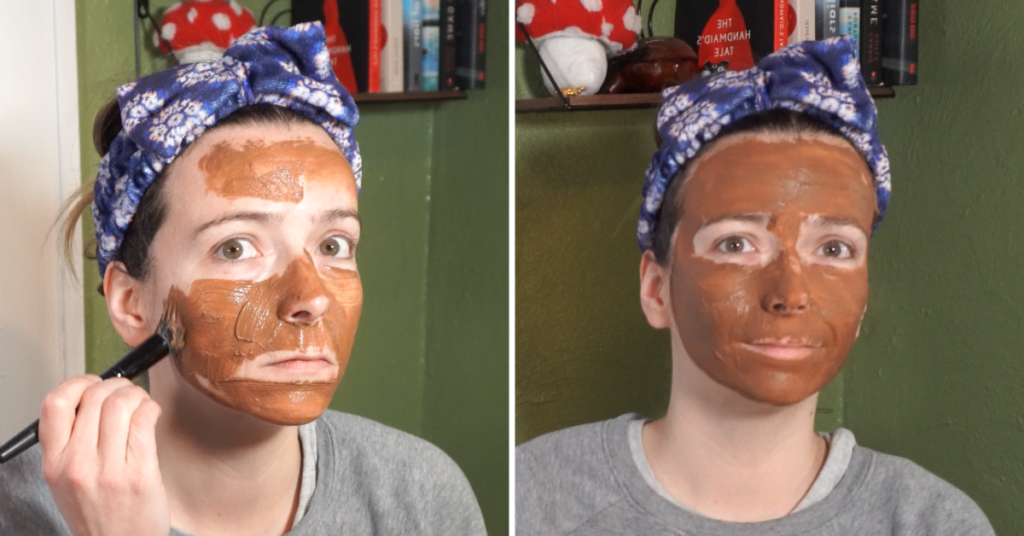
Moroccan red clay
Chamomile powder
Aloe powder
Sensitive Skin
Kaolin clay
Colloidal oatmeal
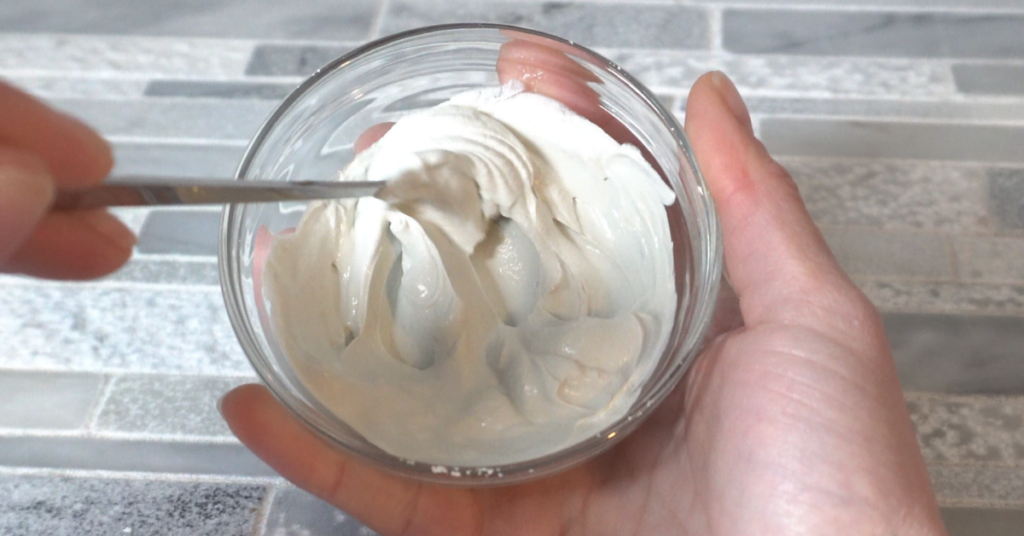
How to make clay mask recipe
- Take approximately 1 tablespoon of your clay into a mixing bowl.
- Slowly add about 1 teaspoon of the active ingredient
- Then add 1 tablespoon of water to the face mask to hydrate it.
- Continue to add small amounts of water until you reach a mud-like consistency.
You can swap the water for any of your liquid additives, such as a hydrosol or aloe juice.
How often can I use a clay face mask?
All skin types are not the same, so it is important to pay attention to your skin and how it responds to your masks.
Clay masks have a high absorption rate; the most you want to use is 1-2 times per week.
Remember that more is not always better.
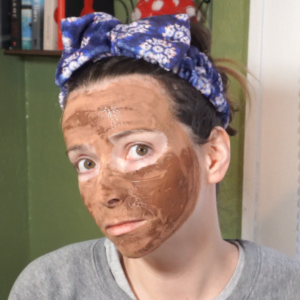
How do you use a clay mask on your face?
- Cleanse your face and dry it before applying the mask.
- Using a makeup brush (or your hands), apply the mask evenly to your face.
- Allow the mask to start to dry on your face.
- To remove the mask, soak a washcloth in warm water and set it on your face to loosen it up.
- Rinse the mask off completely with water.
- Follow up with a moisturizer.
Summer Rain Community
Don’t miss out on your journey to crafting exceptional skincare at home! You can subscribe to my blog for a treasure trove of DIY skincare recipes, insightful tips, and expert guidance.
Subscribe to our newsletter!
Subscribe to our newsletter!
Join the community of skincare enthusiasts! Follow us on social media to dive deeper into the world of homemade skincare. Discover exclusive content, behind-the-scenes insights, and connect with like-minded individuals passionate about nurturing their skin naturally.
Facebook: https://facebook.com/summerrain.website/
Pinterest: https://www.pinterest.com/summerrainblog/
Patreon: https://www.patreon.com/Summerraindiy
TikTok: https://www.tiktok.com/@summerraindiy
Let’s embark on this exciting skincare adventure together—subscribe, follow, and elevate your DIY skincare game!
